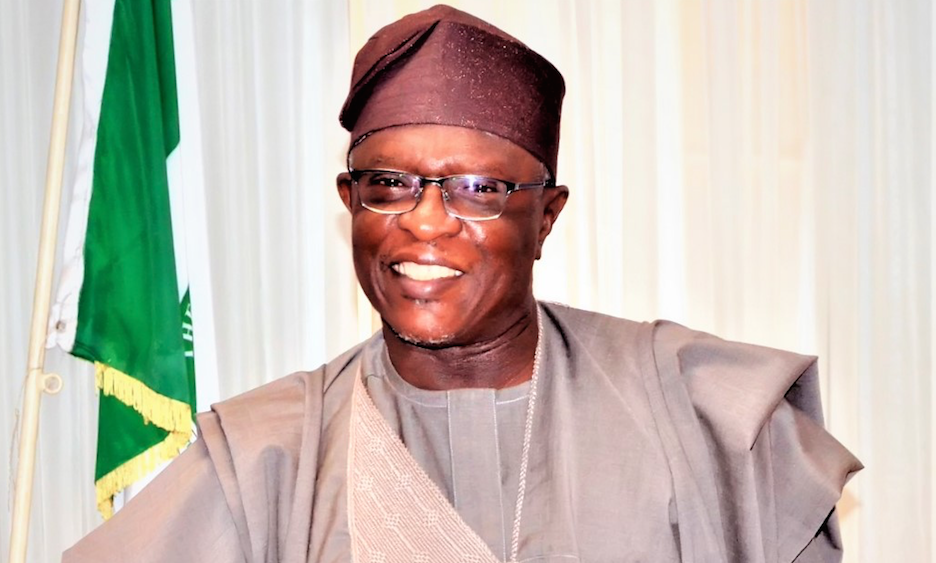BY MUDASIRU OLALERE-YUSUF
Necessity is said to be the mother of invention, and invariably it fuels action. The 2018 Spanish flu and its twin, the second world war which started the same year, led to the robust believe that the film will supplant the contemporary education. Thomas Edison in 1922 gleefully proclaimed that the motion picture is destined to revolutionize our educational system and that in a few years it will supplant largely, if not entirely, the use of textbooks. You and I can now judge the fulfilment of that prediction.
Lately, the descendant of the 1918 pandemic, COVID-19 seems to have brought about another wave of predictions regarding the capacity of ICT to revolutionize Nigerian education.The pandemic underscores the need for 24/7 access to education beyond the brick-and-mortar walls of the institutions.
Undoubtedly, online instruction is the future of education. Tonnes upon tonnes of research have established that, on average, online teaching, at every education level, is not just as good but sometimes more effective than conventional face-to-face instruction. Meta-analysis studies have indicated that blended/hybrid instruction, a combination of online and face-to-face teaching, had a more significant advantage relative to traditional face-to-face or fully online instructions.
Commentators have been passionate about their diagnoses and solutions to online teaching in Nigeria. The consensus seems to be that the myriad of technological tools in the nation can do the magic. In action, we seem to believe that anyone can teach. Similarly, we seem to think that anyone can teach online. With our current mindset, inadvertently, we would succeed in creating a community of online cheaters and not online teachers. The reality is that technologies in themselves can never assure quality and productive online instruction.
Advertisement
Individuals, institutions, and nations teaching online did not start teaching online during COVID-19; they only stepped-up teaching online during the epidemic. In our rush to go online, we cannot neglect the enduring needs for the adoption of the right pedagogical principles to promote intellectual creativity and personal growth of the learners. We need to avoid emergency online instruction options that would hardly be productive.
For emphasis, the most critical element in effective online teaching is the TEACHER. Online teaching is not only about technology, but perhaps more about basic techno-pedagogical knowledge and skills. Real online teachers are those who have basic knowledge and skills to use technology for synchronous and asynchronous instruction. These are teachers who have the expertise for online course planning and design; interaction, assessment, giving students feedback; getting feedback from students; and new technologies. These are instructors who can structure and implement their subjects/courses using enlivening techniques, for fully online or hybrid courses. Online teachers are not just subject specialists; they are adept in the art, craft, and science of online instructional delivery.
The critical question is: are Nigerian teachers at all levels prepared for online teaching?. The answer is an emphatic NO. The practising and pre-service teacher, lecturers in higher institutions, are not prepared for quality online instruction. The real fact is that contemporary teachers in Nigeria are for traditional teaching in conventional classrooms, with or without technology. If forced to move online, they will bring their conventional pedagogies which may not be effective for online instruction.
Advertisement
Critical stakeholders need to embark on aggressive training and re-training of teacher for blended learning. We must make conscious efforts to prepare teachers who will promote not only technology-enhanced but also technology-enabled learning environments. A new generation of teachers who can adapt their existing materials for online and also help produce learners who use technology to extend their classroom learning. We must sow to reap.
The nation needs to move the existing teachers to the level where they can be productive online teachers. Professional development is vital for online teachers to maintain mastery of both subject matter and instructional methods. A robust professional development programme anchored by experts will empower practising classroom teachers/lecturers to become effective online teachers/tutors. Such professional development programmes must occur partly online, the medium in which the teachers are to deliver their courses. That is, using the model the model design so that teachers/lecturers experience for themselves both the medium and the methods they will adopt to teach online.
Pre-service teachers must be the next generation of online teachers, and this entails that the teacher education curriculum in Nigeria would undergo restructuring. Traditionally, the Nigerian pre-service teacher education programme has no component on the element of online instruction. The benchmarks for teacher education by the National Universities Commission (NUC) and the National Commission for Colleges of Education (NCCE) do not require pre-service teachers to take even a course in how to instruct online. With the promise of online education, pre-service training in online teaching skills should be a prerequisite for teacher education certificate or degree. Pre-service teachers modelling of effective online course design and delivery will make them become productive 21st-century teachers.
At the masters and doctoral levels, online teaching or e-learning option must be a particular area in educational/instructional technology discipline. Graduates from the programme will be online teacher educators, facilitators, and online instructional designers. The Nigerian Teacher Registration Council must ensure that part of its requirement for teacher certification is evidence of pre-service or in-service online teaching competence.
Advertisement
US Senator Nancy Kassebaum did warn, There can be infinite uses of the computer and of new age technology, but if teachers themselves are not able to bring it into the classroom and make it work, then it fails. It is not enough for us to engage in fire brigade approach to go online, we must plan and ensure quality training for our teachers to transit from being teachers for the four walls of the classroom to teachers with blended teaching skills. Besides, teachers must be motivated and supported to go online.
Olalere is a professor of educational technology is the president of the Association for Innovative Technology Integration in Education (AITIE); former director, Centre for Open and Distance Education (CODL); former director, Directorate of Computer Service and Information Technology (COMSIT), University of Ilorin.
Views expressed by contributors are strictly personal and not of TheCable.






